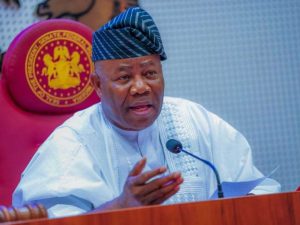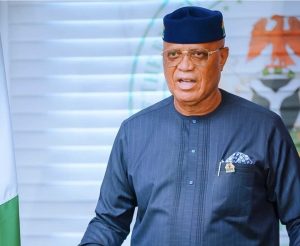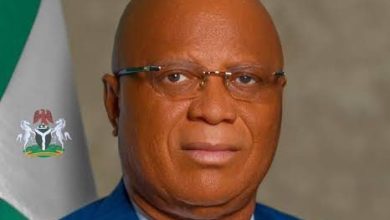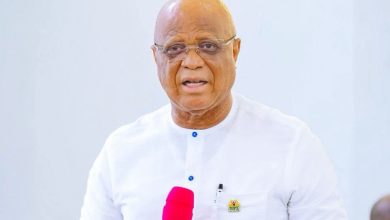38 Years After, Akwa Ibom Still Dreaming Of First Refinery
By Substance Udo-Nature

“We need a depot here for aviation fuel. We might not wait for a big refinery, just a licence for a modular refinery. We don’t have a single presence of the oil and gas in Akwa Ibom”- former Governor Udom Emmanuel, 2021.
To think that Akwa Ibom, arguably the largest contributor of oil in the country, cannot boast of one fuel depot or refinery in its backyard 38 years after the creation of the state is a serious matter of concern. A big shame, you may say! But there have been proposal upon proposal and promise upon promise by both government and private sector drivers.
According to the latest data by Intelpoint, a data and research firm, Akwa Ibom tops oil-producing states in Nigeria by daily output. A significant percentage of Nigeria’s revenue is derived from oil. The pegging order of states’ oil production is as follows: Akwa Ibom (504,000 bpd); Delta (346,000 bpd); Rivers (344,000 bpd); Bayelsa (290,000 bpd); Ondo (60,000 bpd). Others are Lagos (40,000 bpd), Edo (33,000 bpd), Imo (17,000 bpd), Abia (11,000 bpd), and Anambra (3,000 bpd). By virtue of Dangote Refinery, Lagos, with 40,000 bpd, boasts a world-class refinery and depots.
Perhaps the closest Akwa Ibom State has come, theoretically, in recent memory was in the days of former Governor Udom Emmanuel.

He had, during his address at a petroleum industry retreat organised by the minister of state for petroleum resources, Mr Timipreye Silva, held at the Le Meridien Hotels, Uyo, Akwa Ibom State, Saturday, August 22, 2020, argued that it was time the NNPC thought in the direction of compensating Akwa Ibom with a depot or refinery for her huge contributions to national development.
The governor reasoned that such an initiative would boost his administration’s effort at expanding and transforming the economic fortunes of the state and thereby create employment opportunities for the ever-bourgeoning unemployed and dependent demography of the state. On the strength of the state’s existing infrastructure and peaceful environment, Mr Emmanuel emphasised that there was a deliberate effort by his administration to reposition the state socio-economically towards launching out as a strategic partner in the oil and gas sector.
Related: Federal Government’s $465 Million For ALSCON’s Revival –To Be Or Not To Be?
Udom hinted that the expectation of this possibility was part of the inspiration for the construction of the sky-kissing 21-storey smart building by his government.

“Modular refineries or petrochemicals should be totally liberated from whatever bottlenecks to create more job opportunities and stimulate a whole lot of economic activities,” the governor posited.
Sylva, who attended the event as the leader of a delegation of oil and gas industry stakeholders and government functionaries, noted that the choice of Akwa Ibom for the retreat was predicated on her peaceful nature, which was one of the attractions to investors.
The minister then disclosed that the Federal Government had approved the establishment of a Nigerian National Petroleum Corporation (NNPC) (as it then was) oil and gas logistics centre and a petroleum depot in Akwa Ibom State.
“I have the full support of the NNPC to announce to you that we are very interested in partnering with you to build a base here. It will be the first here. The government has also approved the immediate establishment of an oil and gas logistics facility in the state. A few concerns were raised about the choice of Akwa Ibom for our retreat, but politics was not part of the consideration.
“As we go back, work will start in earnest. Mr President has already helped by signing a free trade zone status for that area. We went all the way to Ibaka, a very interesting and painstaking journey. Some people in my team were excited because it was a rare experience using the boats,” Sylva had stated on behalf of the government.
According to NNPC, the initiative was part of its sustained efforts to improve government revenue and impact the people by developing capacity and growing local content. Earlier in the day, the then GMD of NNPC, Mele Kyari, had led the high-profile team on an inspection of 2000 acres of land in Ibaka, contributed by the Akwa Ibom State government.
Disappointingly, five years later, the project that Timipreye Sylva said “work will start in earnest” remains a pipe dream. Petroleum dealers till today still have the option of either risking the dangers posed by the Calabar-Itu Road to go for fuel in Cross River State or going all the distance to Port Harcourt for petroleum products.
A recent fact-finding mission to the proposed locations for the project in Ibaka indicated that nothing, yes nothing, has happened at the place since the beautiful words of Mr Sylva at the retreat.
Juxtapose the situation with the Dangote Refinery, which was constructed and completed within the deadline. The project was first considered in 2013, with major construction starting around 2016 or 2017 after a relocation to Lekki. The construction phase of the US 20 billion dollar undertaking spanned from 2016 to 2023, a period of about seven years during which the project went from excavation and infrastructure to full commissioning in May 2023.
There can be no telling that, contrary to the Federal Government’s claims of interest in building a refinery in Akwa Ibom, politics and lack of genuine interest and commitment by the government were the greatest impediments.
Not long after the retreat, however, a French petroleum technology company, Axens, was said to be involved in BUA Group’s 200,000 barrels per day (BPD) refinery project in Akwa Ibom State. The project was hyped to be a multi-dollar, integrated refinery and petrochemical plant to be sited in Akwa Ibom State. Both firms signed the agreement in Paris, France, on Tuesday, September 1, 2020, for the supply of process technologies and the design of the facility.
Previewing the prospective gains of the project to Akwa Ibom people specifically and the country in general on completion, chairman of BUA Group, Abdul Samad Rabiu, while commending Axens and the French government for the partnership, as well as the government of Nigeria and Akwa Ibom State, had envisioned the direct and collateral benefits of the project, on commencement of operations, to be massive.
They include a reduction in the cost of transporting crude oil offshore and refining and importing it, besides the associated impact. The targeted date for completion of the project was 2024.
Rabiu also hinted that when and if the proposed refinery is actualised, BUA is expected to boost its annual production capacity to 11 million tonnes. “A 10 million tonnes per annum refinery and petrochemical project is in line with BUA’s vision to develop local capacity in key industries where we can add the most value and where raw materials can be sourced locally.”
Presently, Nigeria’s estimated daily consumption of petroleum products is placed at 500,000 to 550,000 barrels per day, and it imports 90 per cent of its petroleum products. Even with fuel subsidy removal, the situation accounts for about 35 per cent of foreign exchange being spent on the importation of petroleum products alone.
Again, on November 28, 2021, Udom had asked the Federal Government and the NNPC for a licence to operate a modular refinery in Akwa Ibom State, which is a major oil producer in the country. He tabled the request while playing host to the management of NNPC Upstream, led by the group executive director, Adokiye Tombomieye, in Uyo.
“We need a depot here for aviation fuel. We might not wait for a big refinery, just a licence for a modular refinery. We don’t have a single presence of the oil and gas in Akwa Ibom.”
Not to be forgotten is the fact that in 2017, the NNPC had also announced that France, through the French Development Agency, had set aside sums in the tune of US$1.4bn to be invested in the Nigerian oil and gas industry, with an eye on Akwa Ibom. The French Ambassador to Nigeria, Denys Gauer, made it known when a delegation led by Ndu Ughamadu met him in Abuja.
The fact remains that having a refinery in Akwa Ibom will be both as compensation and in justification of her huge contributions to national growth and development over three and a half decades. This need for a refinery in Akwa, which is of tremendous economic relevance, must be seen beyond the narrow prism of politics but through the spectrum of necessity.
Politics previously must have been one of the hindrances, especially with the burden that the moribund refineries in Port Harcourt and Warri had since become. Akwa Ibom, indeed, deserves a refinery – not even a modular refinery would suffice if there were options to choose from by the Akwa Ibom people.




